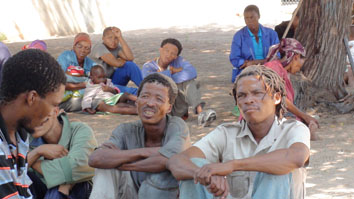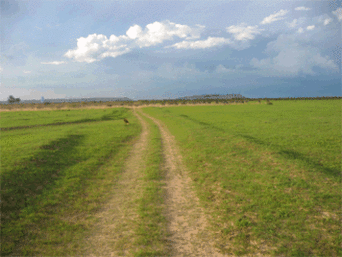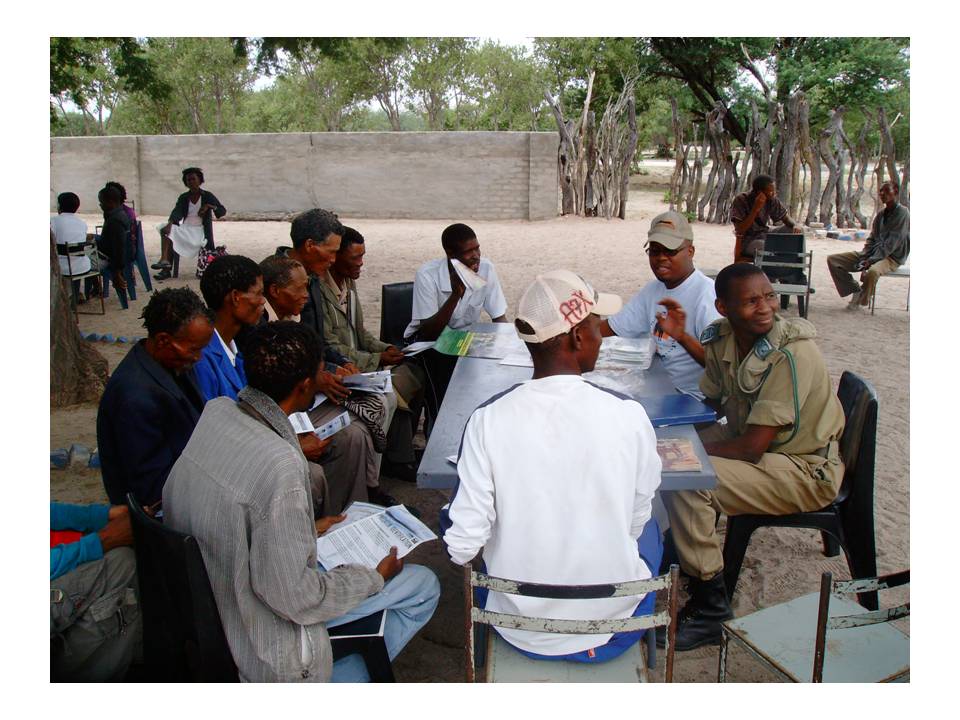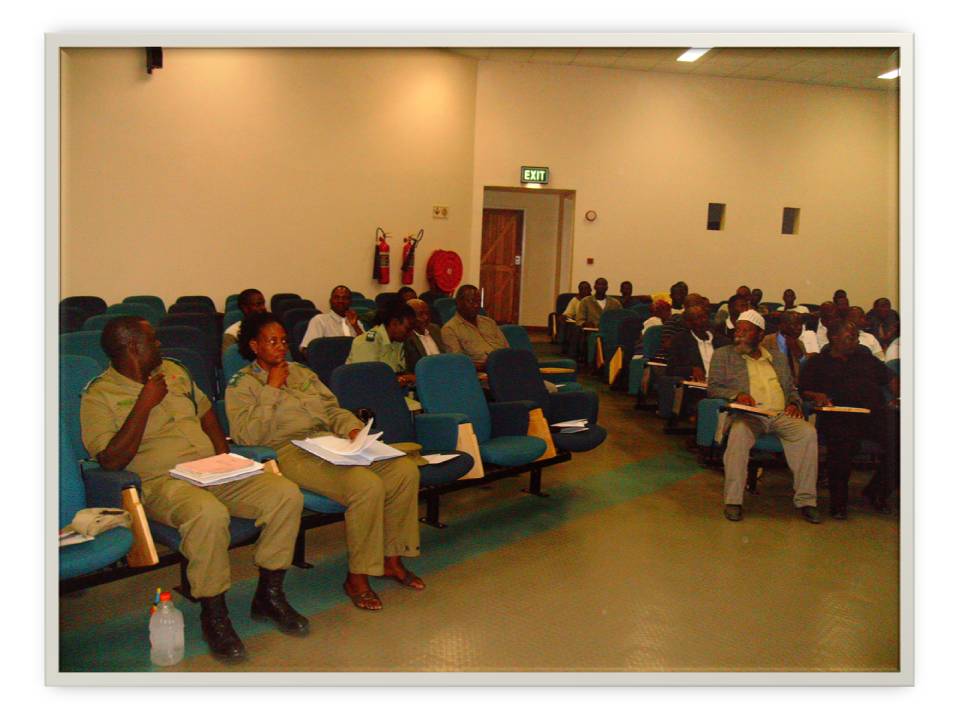CCB talked at length about good livestock management techniques and preventative methods which can reduce livestock loss to predation, such as good kraal designs, good livestock managers who have knowledge of predators in the area, use of livestock guard dogs and record keeping. Farmers were advised to take proper care of their guard dogs and livestock managers to enjoy the benefits of sustainable management practices. CCB provides free veterinary care to dogs that have been placed as guard dogs such as sterilisation, vaccination and de-worming. Farmers were also advised to protect their livestock using other techniques such as kraaling livestock at night to avoid them becoming easy opportunities to predators. Better knowledge and management will result in improved health, quality and productivity of livestock, thus improving the wealth of farmers.
|
The objectives of the workshop were to share ideas and experience on problem animal control methods and to acquaint participants with knowledge to mitigate predator conflicts, understand the importance of wildlife and its benefits and on compensation procedures. Invited stakeholders included Cheetah Conservation Botswana (CCB) represented by Mr Kokole & Mr Tagwa, Department of Immigration in Bray, Botswana Unified Revenue Service and Botswana Police Service.
CCB talked at length about good livestock management techniques and preventative methods which can reduce livestock loss to predation, such as good kraal designs, good livestock managers who have knowledge of predators in the area, use of livestock guard dogs and record keeping. Farmers were advised to take proper care of their guard dogs and livestock managers to enjoy the benefits of sustainable management practices. CCB provides free veterinary care to dogs that have been placed as guard dogs such as sterilisation, vaccination and de-worming. Farmers were also advised to protect their livestock using other techniques such as kraaling livestock at night to avoid them becoming easy opportunities to predators. Better knowledge and management will result in improved health, quality and productivity of livestock, thus improving the wealth of farmers.
2 Comments
For the long term conservation of the cheetah and the Kalahari, it is essential to for farmers to utilize appropriate methods of range, livestock and conflict management. CCB has been collaborating with the Department of Wildlife and National Parks to put on a series of workshops for farmers to promote these best practices. The objectives of the workshops are to share ideas and experiences on reducing predator conflict and to acquaint participants with knowledge, tools and a deeper understanding of the importance of wildlife and its benefits.
 The CCB Community Outreach and Research teams are collaborating to assess the effect of various conflict mitigation methods on levels of cheetah and predator conflict. The settlement of Kacgae, in the Western Kalahari, was selected to take part. There are high levels of conflict, with cheetah, wild dog, leopard and occasional lions. Selected farmers are being assisted to improve their kraals and place livestock guarding dogs. Changes to conflict levels, predator sightings and attitudes will be monitored. Community members have recently visited the CCB Tiisano Bush Camp for a training workshop in reducing conflict and the new kraals are being built. We look forward to working with Kacgae to reduce the conflict in this important Kalahari wildlife corridor region. Thanks to WCN supporters, Richard Scheller and Susan McConnell for supporting this important initiative!  CCB is looking for two dedicated, hard working people interested in predator conservation and willing to put up with long work days and spartan living conditions. CCB will be participating in a special project assessing the numbers of predators in the Central Kalahari Game Reserve, the worlds second largest game reserve. The project will involve one week in a team working and living in the game reserve counting predators and other rare animals and free camping in the park. The project will involve long days driving through the park and nights camping in spartan conditions. The volunteers will join CCB for the entire month of March as per our normal volunteer program, but will have the added opportunity to participate in the predator count in their final week. Interested applicants should visit the CCB and the working abroad websites (cheetahbotswana.com or workingabroad.com) or email [email protected] or Victoria McNeil at [email protected] |
SearchArchives
May 2024
Categories |



 RSS Feed
RSS Feed
